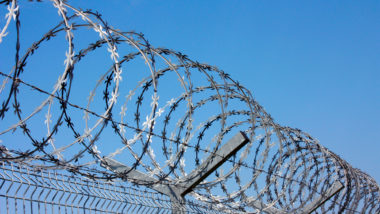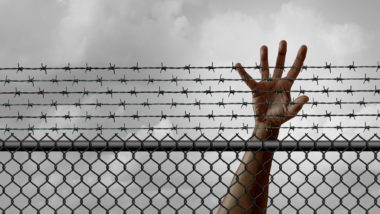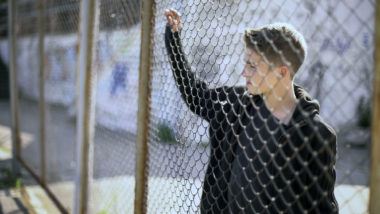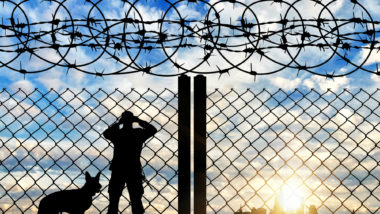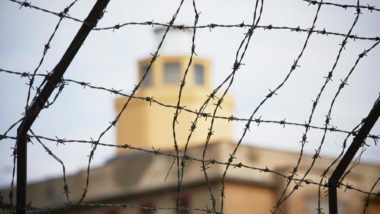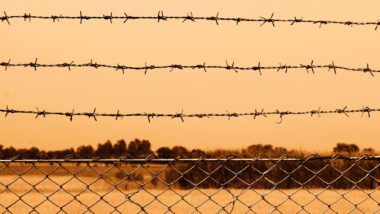Top Class Actions’s website and social media posts use affiliate links. If you make a purchase using such links, we may receive a commission, but it will not result in any additional charges to you. Please review our Affiliate Link Disclosure for more information.
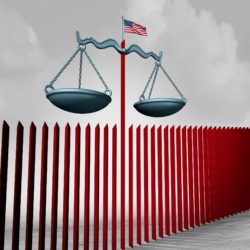
What is CoreCivic?
CoreCivic is a for-profit operator of prisons and immigration detention centers. It is one of the largest operators of these facilities in the country, with over 54 detention facilities across the United States. CoreCivic’s detention centers have the ability to house more than 75,000 migrants.
What are Migrant Detention Centers?
Immigrant detention centers are centers where immigrants are held for an indefinite period of time while they await a determination of their immigration status or deportation.
While these centers are not technically prisons, they are run in a similar fashion and are often housed in former prisons or jails. In 2016, nearly 360,000 people were detained in over 200 immigrant detention centers across the United States. Detainees in these centers have alleged they are often subject to harsh living conditions and may be denied access to family contact, legal aid, or medical care.
What is Forced Work or “Voluntary Work”?
Forced work, sometimes called “voluntary work” despite its true circumstances, is work that detainees are pressured into performing. This pressure may take several forms, including threats of violence or solitary confinement, or deprivation of basic necessities such as toilet paper.
Human rights advocates claim that forced work or “voluntary work” is a violation of human trafficking laws and that immigrant detention centers may be forcing detainees to work illegally. Additionally, immigrants who were forced into these types of work in California are also protected by California labor laws in addition to federal laws.
Who is Affected?
Detainees of migrant detention centers include documented and undocumented immigrants, as well as refugees and asylum seekers. Many of these people are women or children, or otherwise vulnerable.
What Action is Being Taken Against CoreCivic?
Several class action lawsuits have been filed against CoreCivic for their alleged mismanagement of detention centers. Class actions against the private prison company claim that CoreCivic utilized questionable work programs to take advantage of their detainees.
Although CoreCivic claims that these work programs are completely voluntary, class action lawsuits claim that detainees who refuse to work are threatened with solitary confinement, as well as the withholding of basic necessities, like food, soap, toothpaste, toilet paper, and other items.

Forced Labor Class Action against CoreCivic’s Stewart Detention Center in Georgia
Stewart allegedly utilizes what the lawsuit refers to as a “deprivation scheme” in order to illegally force detainees to perform menial labor, according to The Guardian. The immigrants detained in the facility are allegedly pressured into working for low wages when the facility deprives them of necessities. This means that the only way for detainees to have access to these necessary items is by purchasing them at the center’s commissary.
One detainee from Mexico told The Guardian: “I believe the reason why the facility gives the detainees so little food is so we will have to buy food from the commissary. Everything in the commissary is expensive. I spend $80 a week, $320 a month, in the commissary.”
According to the lawsuit, the detention center pays detainees between $1 and $4 a day to work preparing food, doing laundry, or mopping floors. Detainees are able to make up to $8 a day if they work double shifts.
Ahmed argues that the forced labor at Stewart Detention Center violates anti-slavery clauses in the United Nation’s International Covenant on Civil and Political Rights which states that “slavery … in all [its] forms shall be prohibited,” and requires that no one “shall be required to perform forced or compulsory labor”.
Legal Action Against CoreCivic’s Otay Mesa Detention Center in California
A similar class action lawsuit was filed by two former immigration detainees of the for-profit corporation who are accusing the CoreCivic detention center of violating labor and human rights laws. The plaintiffs accuse CoreCivic of illegally forcing its detainees to clean, maintain and operate its detention centers, all for little or no compensation.
Plaintiffs Sylvester Owino and Jonathan Gomez are former civil immigration detainees who were allegedly forced to work at CoreCivic’s 1,492-bed Otay Mesa Detention Center in San Diego. Owino alleges he worked there from November 2005 to March 2015, and Gomez says he worked from June 2012 to September 2013.
At that facility, the plaintiffs report, detainees are allegedly forced to do janitorial work throughout the detention center, including in bathrooms, showers, and the on-site medical facility. They are expected to do other detainee’s laundry, prepare and serve meals, and assist in catering events for law enforcement personnel.
The alleged forced labor also includes more skilled services, such as providing barbering services and clerical work. The facility’s law library is allegedly run and managed by detainees as well, according to this forced labor class action lawsuit.
In exchange for this labor, Owino and Gomez claim, detainees are offered compensation of $1 per day. The plaintiffs claim they are allowed to spend this compensation only at CoreCivic’s “company store”.
The plaintiffs also allege that CoreCivic compels some detainees to do even more menial work without any compensation at all, using threats of punishment. These detainees are allegedly forced to do janitorial work inside and outside the facility. Those who refuse are threatened with lockdown, physical restraint, or solitary confinement.
These threats allegedly extend not just to those detainees who refused to work but also to their fellow detainees with whom they shared living areas, or “pods,” according to the plaintiffs.
Owino and Gomez are raising claims against CoreCivic for violations of the federal and California Trafficking Victims Protection Acts and of several California labor, employment, and business practice laws. Owino and Gomez propose to represent a nationwide Forced Labor Class that would consist of all civil immigration detainees who performed uncompensated forced labor for CoreCivic at any of its facilities from Nov. 2, 2004, through the applicable opt-out date.
They also propose a subclass to cover Class Members who were forced to work at CoreCivic facilities in California, and a California labor law Class that would cover Class Members forced to work for a dollar a day at California facilities.
CoreCivic’s Laredo Detention Center in Texas also Under Fire
Further legal action against CoreCivic claims that the company’s Texas detention centers unconstitutionally use immigrant detainees for forced labor. Plaintiff Martha Gonzalez says she worked at CoreCivic’s Laredo Detention Center in Texas from May 2016 to August 2017.
Gonzalez is a Mexican native who holds a T-1 visa, a nonimmigrant visa given to victims of human trafficking. She claims that CoreCivic forces detainees at their Texas detention center to work for little to no pay, a practice which increases the company’s profits.
Detainees are allegedly forced into cleaning the facilities, performing office work, conducting maintenance, and performing other tasks. Individuals who refuse to perform the work are reportedly threatened and punished with a range of methods, including “confinement, physical restraint, substantial and sustained restrictions, deprivation, violation of their liberty, and solitary confinement.”
The CoreCivic unpaid labor class action lawsuit claims that some detainees are paid only $1 to $2 per day for their labor, while others are not paid at all, and that the company maintains this practice to profit from the detainees’ labor.
The Texas CoreCivic class action lawsuit goes on to cite the company’s $1.7 billion in profits from 2016, claiming that the unpaid labor was a central part of the company’s business model and the key to the company yielding such high profits. Allegedly, detainees who are paid in this small amount, like in other lawsuits, are allowed to spend their earnings only internally at CoreCivic’s commissary store, thus further enriching the company’s profits.
The private prison forced labor class action lawsuit claims that this practice is unconstitutional because though the constitution does permit incarcerated criminals to be required to perform unpaid labor, the constitution does not permit the same treatment of immigration detainees. Gonzalez stresses that immigration detainees are not prisoners, as they have not been convicted of a crime, and that many immigration detainees at CoreCivic facilities are asylum seekers.
Gonzalez argues that “CoreCivic treats these human beings as a slave labor force. CoreCivic does not provide basic human dignity to these people and as a result, causes serious and severe mental distress and anguish.”
The immigrant detainee class action lawsuit also claims that CoreCivic presents detainees with a false statement that indicates that paying individuals only one or two dollars a day is indeed a legal practice. This prevents detainees from defending their rights and being able to sufficiently resist the practice, the plaintiff claims.
Can I File a CoreCivic Immigrant Detainee Class Action Lawsuit?
Although legal action has been taken against CoreCivic for some of their detention center forced labor policies, individuals who suffered similarly may be able to file their own lawsuit against the company. CoreCivic operates numerous detention centers across the U.S., meaning that detainees at these facilities may be suffering from similar unlawful forced labor practices.
If you or a loved one has been detained at a CoreCivic migrant detention center and have been forced or pressured into working for pennies or dollars a day, you may be able to seek compensation for human rights violations you may have suffered.
Join a Free CoreCivic Class Action Lawsuit Investigation
If you were detained in one of CoreCivic’s detention facilities as an immigration detainee with pending immigration status or deportation within the past year or you witnessed forced-labor practices, you may qualify to participate in an immigration detainee labor lawsuit investigation.
Fill out the form on this page for more information.
This article is not legal advice. It is presented
for informational purposes only.
ATTORNEY ADVERTISING
Top Class Actions is a Proud Member of the American Bar Association
LEGAL INFORMATION IS NOT LEGAL ADVICE
Top Class Actions Legal Statement
©2008 – 2024 Top Class Actions® LLC
Various Trademarks held by their respective owners
This website is not intended for viewing or usage by European Union citizens.
Get Help – It’s Free
Join a Free CoreCivic Class Action Lawsuit Investigation
If you qualify, an attorney will contact you to discuss the details of your potential case at no charge to you.
PLEASE NOTE: If you want to participate in this investigation, it is imperative that you reply to the law firm if they call or email you. Failing to do so may result in you not getting signed up as a client or getting you dropped as a client.
E-mail any problems with this form to:
Questions@TopClassActions.com.
Oops! We could not locate your form.

